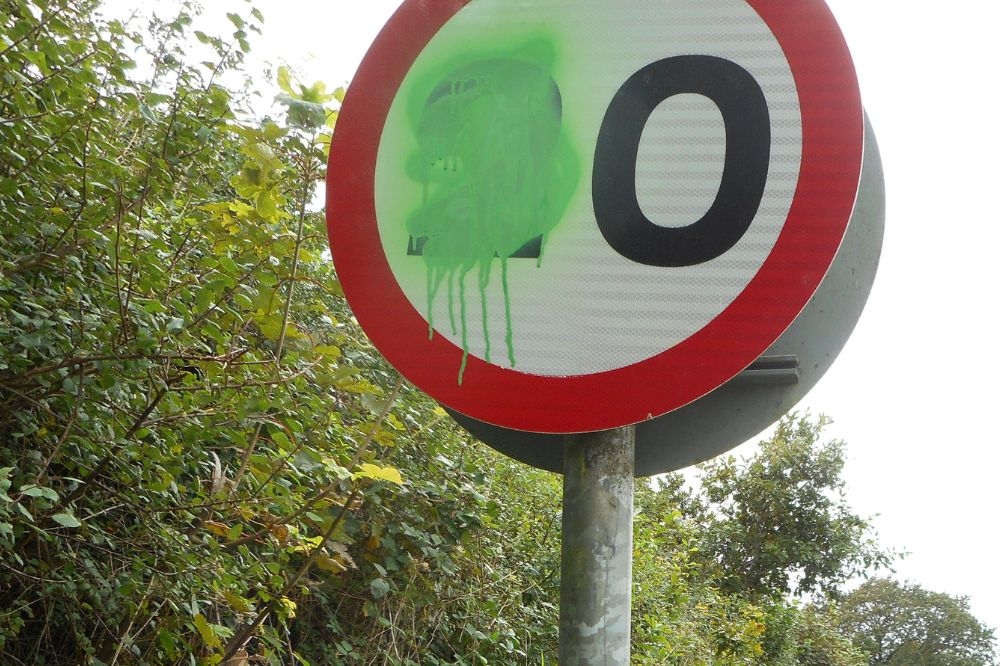 jerkface
10h ago
•
100%
jerkface
10h ago
•
100%
So it's not just poor grammar you can't tolerate, but also criticism. And yet you are so free with it.
 jerkface
14h ago
•
50%
jerkface
14h ago
•
50%
This is a confession that you are not well enough to participate in online discussions. Show this to someone you trust.
 jerkface
17h ago
•
100%
jerkface
17h ago
•
100%
"Crazy"
 jerkface
1d ago
•
100%
jerkface
1d ago
•
100%
That's ableist.
 jerkface
2d ago
•
100%
jerkface
2d ago
•
100%
Flooding and fires are in fact exploited by many plants, even necessary for some.
 jerkface
2d ago
•
77%
jerkface
2d ago
•
77%
Canada was created as a colonialist apparatus, that exists to facilitate the extraction of natural and human resources, and transfer them to private ownership. It's literally the reason the country exists, and it has never been reformed. We just cover it up with PR. We don't emit greenhouse gasses because we are trying to terraform the planet, it's just the most profitable way to exploit our resources right now.
 jerkface
2d ago
•
100%
jerkface
2d ago
•
100%
If you can deny the sentience and right to exist without being property of cows, pigs, and chickens, its a very small step to humans.
 jerkface
2d ago
•
100%
jerkface
2d ago
•
100%
As much as I hate SEO companies, people who hire them are even worse, so I can only approve of this.
 jerkface
2d ago
•
66%
jerkface
2d ago
•
66%
...when the actual wounded party (if any could really be found) would be the photographer and/or the graphic artist who produced the image. The model had no idea or say in how their image would ultimately be used. No doubt dozens of images were taken probably some with brim down. It's not up to the model to decide how the images are used.
 jerkface
2d ago
•
66%
jerkface
2d ago
•
66%
I KNOW YOU ARE BUT WHAT AM I TIMES INFINITY
 jerkface
2d ago
•
66%
jerkface
2d ago
•
66%
I KNOW YOU ARE BUT WHAT AM I
 jerkface
2d ago
•
66%
jerkface
2d ago
•
66%
I KNOW YOU ARE BUT WHAT AM I
 jerkface
2d ago
•
66%
jerkface
2d ago
•
66%
Takes one to know one.
 jerkface
2d ago
•
66%
jerkface
2d ago
•
66%
That's so funny, I forgot to laugh.
 jerkface
2d ago
•
71%
jerkface
2d ago
•
71%
I bet you're fun at parties.
 jerkface
2d ago
•
100%
jerkface
2d ago
•
100%
Ashley wisely identified a 4chan bro and GTFO'd.
 jerkface
2d ago
•
100%
jerkface
2d ago
•
100%
I give up, what then?
 jerkface
2d ago
•
75%
jerkface
2d ago
•
75%
Any man walking around without a vasectomy is a fool.
 jerkface
2d ago
•
100%
jerkface
2d ago
•
100%
When most of your life occurred in the 20th century, it looks a lot different.
**Rethinking Sapience: The Case Against Speciesism in Animal Intelligence** The question of whether humans are uniquely sapient has long been debated by philosophers, scientists, and ethicists. Sapience—often defined as higher-order reasoning, self-awareness, problem-solving, and moral agency—has traditionally been considered a uniquely human trait. Yet, this view is increasingly being challenged. Research shows that many non-human animals possess remarkable cognitive abilities that rival, or even surpass, those of humans in certain domains. By maintaining the belief that animals “fall short” of sapience, we reinforce a speciesist worldview, one that arbitrarily privileges human intelligence and dismisses the extraordinary cognitive capacities of other species. In fact, when we examine animal cognition more closely, we find that many non-human animals demonstrate intelligence, emotional complexity, problem-solving skills, and memory that far exceed human abilities in their respective ecological contexts. Moreover, recent studies in animal cognition reveal that some animals display moral agency and metacognition—traits that challenge the exclusion of non-human species from the concept of sapience. ### The Problem with Human-Centered Definitions of Sapience Sapience has historically been defined in ways that reflect human-centric values, focusing on abilities such as abstract reasoning, language, and moral reflection—areas where humans appear to excel. However, this definition overlooks the specialized forms of intelligence found across the animal kingdom. By measuring animal cognition against human standards, we ignore the unique abilities that different species have developed to thrive in their environments. This bias is a form of speciesism, a discriminatory belief system that privileges one species (humans) over others without justification. ### Superior Animal Cognition: Examples from the Natural World Many animals possess cognitive abilities that rival or surpass those of humans, especially in areas crucial to their survival. **Dolphins** and **bats**, for instance, use echolocation to navigate and hunt, a sensory and cognitive ability that far exceeds human capacities. These animals rely on sound waves to "see" their environment, granting them spatial awareness that humans could not replicate without sophisticated technology. Birds like **Clark’s nutcrackers** display extraordinary memory, capable of recalling the locations of thousands of food caches over long periods. This spatial memory ability vastly outperforms that of humans in similar tasks. **Homing pigeons** likewise demonstrate remarkable navigational skills, finding their way home over great distances, even when displaced to unfamiliar locations, a task most humans would find impossible without tools such as maps or GPS. **Octopuses**, renowned for their intelligence, showcase problem-solving skills, tool use, and even escape artistry that rival human ingenuity in similar scenarios. Their ability to adapt to new environments, manipulate objects, and even exhibit playfulness underscores the rich cognitive life these animals possess. Among the most compelling examples of superior cognitive abilities come from **great apes**, our closest relatives. **Chimpanzees**, for instance, excel in short-term memory and visual processing. In tasks where young chimpanzees are asked to recall numbers briefly flashed on a screen, they outperform adult humans. This memory capability is likely crucial for survival in the wild, where rapid decision-making and recall can mean the difference between life and death. Such examples show that non-human animals can outclass humans in cognitive areas relevant to their own survival and ecological niche. ### Moral Agency in Animals: The Case of Monkeys and Fairness Beyond cognitive intelligence, some animals exhibit what could be considered **moral agency**, challenging the assumption that only humans can act based on ethical principles. **Capuchin monkeys** have demonstrated a keen sense of fairness in laboratory settings, revealing that concepts of justice and equity are not exclusive to humans. In a famous experiment, two monkeys were placed side by side and given different rewards for performing the same task. One monkey received a cucumber, a typical and acceptable treat, while the other received a more desirable grape. Upon seeing the other monkey receive a better reward for the same effort, the monkey who received the cucumber would often protest—sometimes throwing the cucumber away in frustration or refusing to continue the task. This reaction is remarkably similar to human responses to unfair treatment, showing that these monkeys have an intrinsic sense of fairness and justice. Even more striking is that when a monkey is unfairly given a larger share of food, they will sometimes share the excess with their peers, demonstrating an ethical behavior that values equity over self-interest. This behavior suggests that moral agency in animals may be more common than previously believed. Monkeys are capable of understanding and reacting to unfairness, acting in ways that reflect ethical decision-making. This challenges the notion that only humans possess the ability to make moral choices based on justice or fairness. ### Metacognition in Rats: A Forgotten Measure of Sapience **Rats**, often used as models for human psychology in laboratory settings, provide another compelling example of advanced cognition in the animal kingdom. In psychological studies, rats have demonstrated **metacognition**—the ability to reflect on their own mental processes, a trait that has been considered a hallmark of sapient beings. In a typical metacognition experiment, rats are given a task where they can choose to attempt a difficult test with the potential for a larger reward or opt-out for a smaller, guaranteed reward. When the rats are unsure of the correct answer, they are more likely to opt out, suggesting that they have some awareness of their own uncertainty. This ability to assess one's knowledge, or lack thereof, mirrors human metacognitive processes and indicates a higher level of cognitive self-awareness. Despite this, rats are rarely granted the ethical consideration that comes with such intelligence. In psychological research, rats are often treated as human analogs when convenient but are dismissed as "lesser" when it comes to the ethical implications of using them in experiments. This contradiction reveals the inconsistency in how we recognize animal intelligence. Rats are granted cognitive status when it suits human purposes but are denied the ethical protections that should accompany that status. ### The Bias of Human-Centric Tests of Intelligence A significant issue in evaluating animal intelligence is that tests are often designed to measure human-like abilities, ignoring the diverse ways animals solve problems and navigate their world. **Mirror self-recognition**, for example, is commonly used as a test for self-awareness, where animals are evaluated on whether they can recognize themselves in a mirror. While great apes, dolphins, and elephants often pass this test, many animals do not. However, the reliance on visual recognition may not be relevant to species that use other senses, such as smell or sound, to identify themselves. This bias underscores the limitations of human-centric methods for assessing intelligence. Similarly, linguistic ability is often seen as a benchmark for sapience, with humans using complex, symbolic language to convey abstract ideas. However, many animals communicate in sophisticated ways that convey critical information. **Bees**, for instance, use a "waggle dance" to communicate the location of food sources, while **whales** and **dolphins** employ intricate vocalizations that may contain elements of grammar. These forms of communication are highly evolved for the needs of their species, even if they do not resemble human language. ### Acknowledging Animal Intelligence Without Speciesist Bias By focusing on where animals "fall short" rather than on their unique strengths, we reinforce a speciesist worldview. This narrow definition of intelligence not only distorts our understanding of the animal world but also justifies harmful practices, such as the exploitation of animals for food, research, and entertainment. To move beyond speciesism, we must recognize and respect the diverse forms of intelligence that exist across species. Rather than privileging human abilities, we should appreciate the remarkable cognitive skills animals possess, whether in memory, problem-solving, communication, or moral reasoning. A broader definition of sapience would encompass the rich variety of intelligence found in the animal kingdom, moving us toward a more ethical and compassionate relationship with non-human species. ### Conclusion: The Case for Non-Human Sapience As research into animal cognition deepens, it becomes increasingly clear that many non-human animals possess intelligence and problem-solving abilities that rival or exceed those of humans. From the memory skills of birds to the metacognition of rats, animals demonstrate cognitive capacities that challenge human superiority. Additionally, the moral agency shown by monkeys and the sophisticated communication systems of bees and dolphins further question the exclusion of non-human species from the concept of sapience. By acknowledging these abilities, we can challenge the arbitrary lines drawn around sapience and move toward a more inclusive understanding of intelligence—one that respects the cognitive capacities of all species. Breaking free from speciesism will lead us to a more ethical and empathetic relationship with the non-human world.
cross-posted from: https://lemmy.ca/post/29454890 > >The 32 countries that have formally recognized non-human animal sentience include the European Union, Switzerland, Chile, Australia, New Zealand and the United Kingdom.

This number is getting pretty big. What is this, like, XP or something? Can I level up? Is it bad? Does anything happen if it gets too big?
 nation.cymru
nation.cymru
cross-posted from: https://lemm.ee/post/38852281 > Figures published by the Welsh Government show casualty reductions as follows for the period January to March 2024, in comparison with January to March 2023: > > All severities at all speeds: 811 (2024); 4348 (2023); > > 20mph. All severities: 300 (2024); 662 (2023) > > Killed or seriously injured: 63 (2024); 144 (2023) > > Slightly injured: 237 (2024); 518 (2023) > > 30mph. All severities: 77 (2024); 1522 (2023) > > Killed or seriously injured: 15 (2024); 343 (2023) > > Slightly injured: 62 (2024); 1179 (2023) > > 40mph. All severities: 74 (2024); 397 (2023) > > Killed or seriously injured: 20 (2024); 98 (2023) > > Slightly injured: 54 (2024); 299 (2023) > > 50mph. All severities: 94 (2024); 273 (2023) > > Killed or seriously injured: 23 (2024); 67 (2023) > > Slightly injured: 71(2024); 206 (2023) > > 60mph. All severities: 214 (2024); 1235 (2023) > > Killed or seriously injured: 71 (2024); 401 (2023) > > Slightly injured: 143 (2024); 834 (2023) > > 70mph. All severities: 52 (2024); 259 (2023) > > Killed or seriously injured: 12 (2024); 73 (2023) > > Slightly injured: 40 (2024); 186 (2023)
It's the same plant where Regan Russell was killed after being struck by a truck carrying pigs
Phoenix has spoken out about Ontario's so-called 'ag-gag' bill and the death of Regan Russell
Digital Extremes has always been a major local name in game development. It's been lead by Eric Schmalz since the 90s until the end of last month.
This is the Animal Justice site's own blog with lots more information than the press
The manual referenced in the video can be found here: https://www.directactioneverywhere.com/theliberationist/investigation-manual


